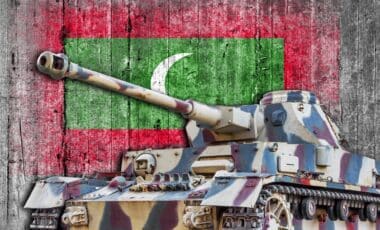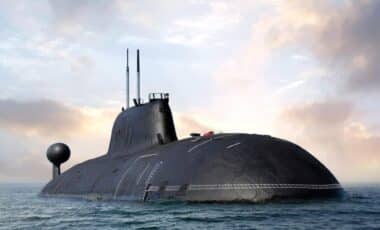In 1917, Germany was at war not only with Russia, but the United States, Great Britain, and France. Those enemies gave Germany’s army two fronts in Western and Eastern Europe. As the USA joined the Triple Entente in 1917, Germany had to win World War I sooner rather than later. Aside from its army, the German High Command also counted on the Bolsheviks to end the war with Russia.
The Russian army had heavy losses in the East after a series of defeats. The army’s counter attacks in 1916 had ground to a halt, and by 1917 the Russians were calling for the tsar’s abdication. As commander-in-chief of the army, Nicholas II was also losing the support of the soldiers. That much became clearer when disgruntled troops began to join the protests. With increasing grain shortages and military defeats, most of the Russian populace called for peace with Germany. In March 1917, Nicholas II abdicated the throne; and Russia’s monarchy effectively dissolved.
 Anti-war protests in Petrograd
Anti-war protests in Petrograd
The Bolsheviks (Russia’s communist party members) had been in exile before the February Revolution. Their most prominent party member Lenin was in Switzerland. This left them outside Russia when the tsar vacated the throne. With Europe engulfed in war, it was not an ideal period for international travel.
A vacuüm had been left in Russia after the demise of the monarchy. It was left to Kerensky to fill that vacuüm before the planned constituent elections. As Kerensky supported maintaining the Russian army’s front in the war, he did not open any peace talks with Germany.
Lenin’s war policy was the opposite. He made it clear that his party did not support the war in Europe. Consequently, Lenin emerged as somebody the German High Command could bargain with. Germany’s military leaders were not communists, or left wingers of any variety; but winning the war in Europe was the priority for them. If there was a party in Russia that would begin peace talks with the Germans, then they could potentially end the war on one front and reinforce their armies in the West. With Lenin as leader, the Bolsheviks (then the Russian Social-Democratic Labor Party) were that very party.
The products below are affiliate products from Amazon.com and provides ARGunners.com with a monetary source to maintain this website. We receive a small amount (AT NO COST TO YOU) from the sale of items. Use the search box below, you can purchase anything you need and we will receive a commission.
So, the German High Command began discussions with the Bolsheviks regarding a potential passage back to Russia. The Germans agreed for Lenin to pass through Germany via railway routes with their own carriages and troops. The trip took Lenin, and other members of his party, to naval ports in Scandinavia. They boarded a boat that took them to Sweden, and from there Lenin proceeded to Russia.
Lenin arrived at the Finland Station in Petrograd during April 1917. Crowds cheered as the Bolsheviks met with the Petrograd Soviet members. Then the revolution began in earnest, which was exactly what the German military hierarchy had hoped for. Lenin pledged to withdraw Russia from the war as soon as possible.
 Train engine that took Lenin to Russia
Train engine that took Lenin to Russia
Aside from the train trip, Germany’s high command also financed the Bolshevik Party in 1917. Finances were provided for them until it was revealed in Russia that the Germans were financing the Bolsheviks. This provided opposition parties with some propaganda scope as Lenin seemed to have become a German spy.
When the Bolsheviks seized the Winter Palace in October, Lenin established the communist regime. Thereafter, the Russians began peace talks with Germany after October. Trotsky met with the Germans at Brest-Litovsk. In 1918, the Bolsheviks reluctantly accepted the Treaty of Brest-Litovsk that effectively surrendered much of Russia’s territory in Eastern Europe to Germany. The treaty ceded Russian Poland, parts of the Ukraine, and the Baltics to the German Empire.
 The Treaty of Brest-Litovsk (also known as the Brest Peace in Russia)
The Treaty of Brest-Litovsk (also known as the Brest Peace in Russia)
Lenin had delivered what he promised both to Russia and the high command of Germany’s army. With Russia defeated, Germany reinforced its Western armies for the 1918 Spring Offensives, which were eventually halted. If the Germans had not supported the Bolsheviks, the October Revolution might not have happened. The subsequent rise of the Soviet Union, which the Germans sowed the seeds of, ultimately had considerable repercussions for the Third Reich during World War II.








